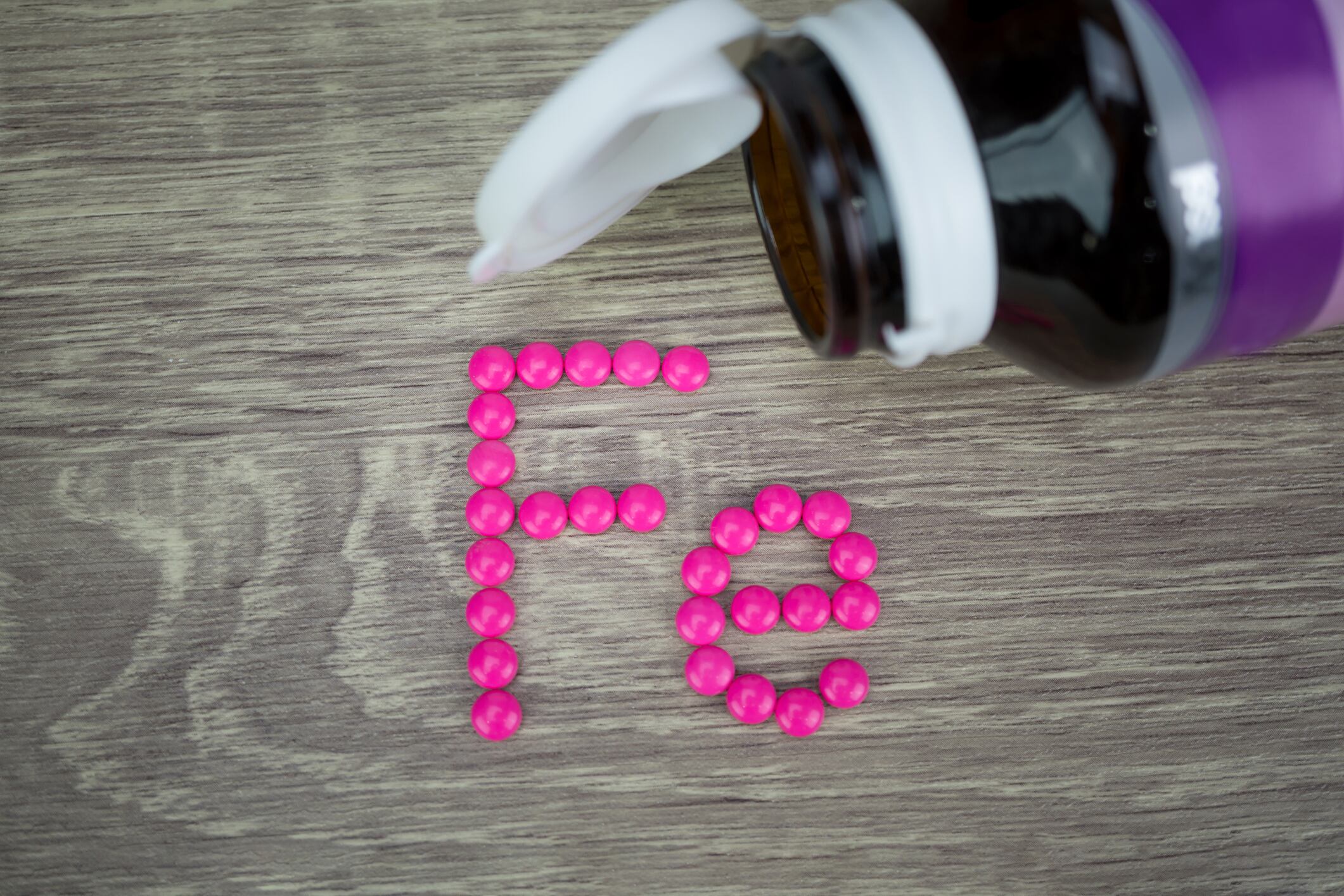Iron deficiency (ID) is ranked as the most prevalent nutritional deficiency affecting around 30% of the global population. ID has been linked to compromised physical and cognitive performance, fatigue, impaired quality of life, and reduced mood.
Ferrous sulphate is considered the ‘gold standard’ iron supplement but non-compliance is as high as 50% due to negative gastrointestinal (GI) effects, often accompanied by inflammation in the gut which facilitates the production of detrimental reactive oxygen species (ROS) and damage to the gut mucosa.
Antioxidants can counteract the effects of ROS and have generated interest to ameliorate the pro-oxidant side-effects of iron.
Curcumin has been extensively studied for its ROS scavenging properties but whole turmeric is known to inhibit iron absorption by 20–90% in humans.
Therefore the aim of this research study, funded by Gencor Pacific Ltd and carried out by researchers from the Centre for Nutraceuticals at the University of Westminster, was to assess the influence of a bioavailable form of curcumin on acute iron absorption in humans.
The curcumin used was HydroCurc, developed by Pharmako Biotechnologies, Australia, using their proprietary LipiSperse delivery system for increased bioavailability.
155 healthy participants (79 males; 26.42 years ± 0.55 and 76 females; 25.82 years ± 0.54) were recruited in a double blind, placebo-controlled randomised trial.
Participants were randomly allocated to five different treatment groups: iron and curcumin placebo (FS0_Plac), low dose (18 mg) iron and curcumin placebo (FS18_Plac), low dose iron and curcumin (FS18_Curc), high dose (65 mg) iron and curcumin placebo (FS65_Plac), and high dose iron and curcumin (FS65_Curc).
Participants were provided with the supplements according to their relevant treatment groups at baseline, and blood collection was carried out at 0 min and at 180 min following supplementation.
The results indicate that in the treatment groups, significant difference was observed in mean serum iron between baseline and end-point (F (1, 144) = 331.9, p < 0.0001) with statistically significant intra-group increases after 180 min (p < 0.0001) in the FS18_Plac (8.79 µmol/L), FS18_Curc (11.41 µmol/L), FS65_Plac (19.09 µmol/L), and FS65_Curc (16.39 µmol/L) groups.
A significant difference was also observed between the two time points in serum total iron binding capacity (TIBC) levels and in whole blood haemoglobin (HGB) in the treatment groups, with a significant increase (1.55%/2.04 g/L) in HGB levels observed in the FS65_Curc group (p < 0.05).
All groups receiving iron demonstrated an increase in transferrin saturation in a dose-related manner.
This study demonstrates, for the first time, that regardless of ferrous dose, formulated curcumin in the form of HydroCurc does not negatively influence acute iron absorption in healthy adults.
Professor Mohammed Gulrez Zariwala, corresponding author and director of the Centre for Nutraceuticals, said: “Iron deficiency remains a significant public health challenge in developed as well as developing countries, and although the benefits of supplementation have been well established, there has been relatively less research and innovation looking at ways to reduce the side effects associated with iron supplementation. Curcumin provides a host of health benefits, but there is a lot of ambiguity regarding its effects on iron absorption.
"Our results show when taken as formulated preparation, curcumin may not impair iron absorption even when taken together with iron supplements, at either low or high iron doses."
In a previous study by the same team, also funded by Gencor, the researchers found that co-administering hydrocurc and iron for six weeks can significantly raise the level of brain-derived neurotrophic factor (BDNF), which is essential for normal neuronal function and energy homeostasis, as well as being linked to improved cognitive function.
Zariwala adds: "Taken together with our results showing the effects of curcumin on increasing levels of the brain factor BNDF, This presents fascinating possibilities of developing newer co-supplementation strategies to harness the benefits of both these molecules’.’
Curcumin's mechanisms of action
Curcumin acts as a free-radical chain breaker, capable of donating hydrogen to ROS due to the presence of a hydroxyl group in its structure. Curcumin also suppresses inflammation by mechanisms including downregulation of NF-κB (nuclear factor kappa-light-chain-enhancer of activated B cells), thereby demonstrating potent anti-inflammatory activity. In addition to its antioxidant and anti-inflammatory action, curcumin has also been shown to have neuroprotective properties, particularly in relation to memory and cognition.
The polyphenol curcumin has been purported to have many health benefits as a result of its potential to target numerous signaling avenues and its impact on cellular level activity. Despite its significant therapeutic potential, the pharmacological use of curcumin has been limited due to its poor bioavailability, limited bio-distribution, poor stability, and short activity half-life.
Formulation science strategies have shown that carrier-based delivery systems such as liposomes and micelles may address these limitations and enhance curcumin’s therapeutic potential. This study utilised curcumin supplement in the form of HydroCurc, a formulation consisting of 85% total curcuminoids entrapped in a proprietary delivery system (LipiSperse) that has been shown to enhance bioavailability in humans.
Source: Nutrients
Lorinczova. H.T., Begum. G., Renshaw. D., and Zariwala. M.G.
"Acute Administration of Bioavailable Curcumin Alongside Ferrous Sulphate Supplements Does Not Impair Iron Absorption in Healthy Adults in a Randomised Trial"



